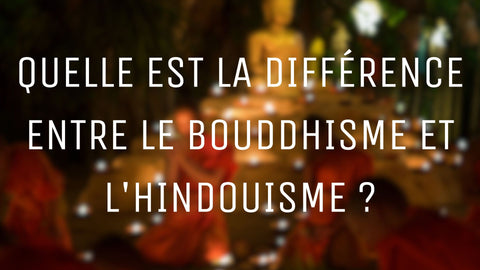
Which is the founder of Buddhism
of reading
Buddha is the founder of Buddhism. He was born on January 1, 563 BC in Lumbini (Nepal) under the name of Buddha. He died on January 1, 480 BC in Kushinagar (India).
The founder of Buddhism
The Buddha, known in the Buddhist tradition under the name of Gautama Siddartha or "Illuminated", is a spiritual leader who founded Buddhism. He was born in the south of Nepal at the sixth century BC. Lumbini, its place of birth, is a UNESCO World Heritage site and one of the four sacred sites of Buddhism.
He was born of King Shuddhodana, son of king, in a sacred forest and his mother died seven days after his birth. He married Princess Yasodhara at the age of sixteen. Growing and being educated in the Hindu manner, that is to say without the anxiety and suffering that reign in the Palace of the Royal Family, helped him

At the age of 29, he discovers poverty and realizes how different his life is in contact with individuals in the street. He chooses to give up his royal existence and turns to asceticism. After practicing austerities and focusing on meditation to understand the world, he studied with great masters.
He sits under a fig tree (pipal) for the next 35 years and makes the wish not to get up before discovering the ultimate reality. Despite the efforts of Mara, the demon of death, to prevent him from achieving his goal, he persevenes in his meditation and becomes illuminated.

The Buddha then claims to understand the nature and origins of human suffering, while affirming that it is neither a god nor a prophet. He makes known the four noble truths in his first sermon "put in motion the wheel of the law", which shows us how to access the ultimate truth thanks to them.
The foundations of Buddhism are based on these four noble truths.For Buddha, meditation can help us overcome our problems and anxieties by allowing us to live the present moment without thinking or feeling. He devoted the second half of his life to travel and teach his method to others.
Key dates in the history of Buddhism
563 AV. BC: Birth of Buddha
The legendary Buddha, Siddharta Gautama, was born in a sacred wood in Lumbini, Nepal. At the age of 29, discovering the suffering of humanity and the cruelty of death, a young ambitious noble decides to give up his goods to lead an ascetic life. To learn more about the life of the Buddha, you are given an appointment on our article: The history of the Buddha
525 AV. J.-C: Buddha pronounces the sermon of Benares
The Buddha pronounced a speech to its first five disciples, which is sometimes called the "first sermon" he wanted to communicate them to the access roads to enlightenment, also known as Nirvana. He then dictated the four noble truths, which are the basis of Buddhist teachings: the suffering must be defined, its origin must be identified, the acceptance of the suffering must be accepted, and the acceptance of the suffering must be accepted

480 AV. J.-C: Death of Buddha
Gautama, also known as Buddha, has lived up to an advanced age after a life of austerity and wandering. It is attributed to the establishment of the theological system of Buddhism. A first council was then held in Rajagrha, bringing together the monks from the entire Buddhist community, where they would have gathered all the teachings of the Buddha in a continuous oral tradition
370 AV. J.-C: Vaisali Buddhist Council
The Buddhist monks again gathered in Vaisali for a second council around 370 before J.-C. This meeting gave rise to disputes between the disciples on monasticism and certain aspects of Buddhist philosophy, like the sacredness of the people who have reached enlightenment.

The Council resulted in a split in the Buddhist population. The Mahasamghika sect separates from the main body, adopting ten new religious laws, while the Sthaviravadin stick to the old rules. About 20 different schools have developed as a result of this conflict.
242 AV. J.-C: Buddhism spreads in Ceylon
Mahinda was King Asoka's son and went to Ceylon for the purpose of introducing Buddhism. According to the legend, his speech would have convinced the sovereign of the country. The introduction of Buddhism in Sri Lanka would have led to the construction of the Mahawihara monastery, which became a major center of Teravada.




















